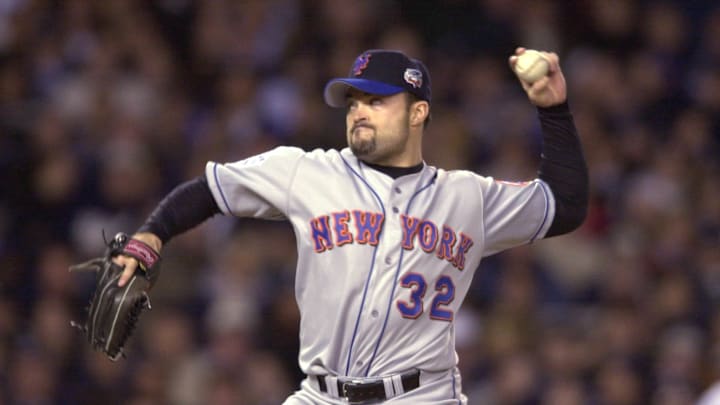Rated as one of the best New York Mets trades in team history by anyone who has put a list together, a 1999 deal with the Houston Astros would have today's fans wondering if the Mets gave up too much for a pair of rentals.
On December 23, 1999, the Mets seized an opportunity to make themselves more serious World Series contenders. In exchange for speedy outfielder Roger Cedeno, young pitcher Octavio Dotel, and lifelong minor leaguer Kyle Kessel, the Mets acquired veteran outfielder Derek Bell and starting pitcher Mike Hampton.
As the results of countless Mets trades have proven, going for the jugular is often the best action to take. This trade went there.
The boldness of the Mets trading for two rentals is a lost art
Hampton and Bell were critical parts of the 2000 Mets. Hampton awarded them with the ace missing from the previous season. Bell shored up right field.
The deal was done all while knowing it might be for nothing more than a pair of players who’d be gone in a blink of an eye. This became reality for the Mets. Both players left the team after 2000, but first there was a pennant to win.
Hampton was coming off of a 22-win season and a runner-up for the Cy Young. While not quite as magnificent as he was in 1999, the lefty hurler would go 15-10 with a 3.14 ERA in his lone season with the Mets. His most memorable performance came in the NLCS when he threw 16 scoreless innings including a series-clinching shutout. He was an easy choice for the series MVP.
Bell was no slouch himself. Sometimes forgotten from this deal, he gave the team a .266/.348/.425 performance complete with 31 doubles, 18 home runs, and 69 RBI. An ill-timed sprained ankle in the first game of the postseason would result in him missing the rest of the year.
The trade worked out well for the Mets, but may have only been made possible by Bell criticizing manager Larry Dierker for dropping him in the batting order. In Dierker’s first game back from brain surgery, Bell went from hitting second to sixth and called out the skipper after the game. In some ways, this trade had a twinge of similarity to the Keith Hernandez deal from more than a decade earlier.
Trades like this don’t seem to happen as much anymore. Prospects are hugged. Years of control matter as much as proven talent. In this instance, the Mets brushed aside the notion of team control. Instead, they pounced and a trip to the World Series was the end result.
